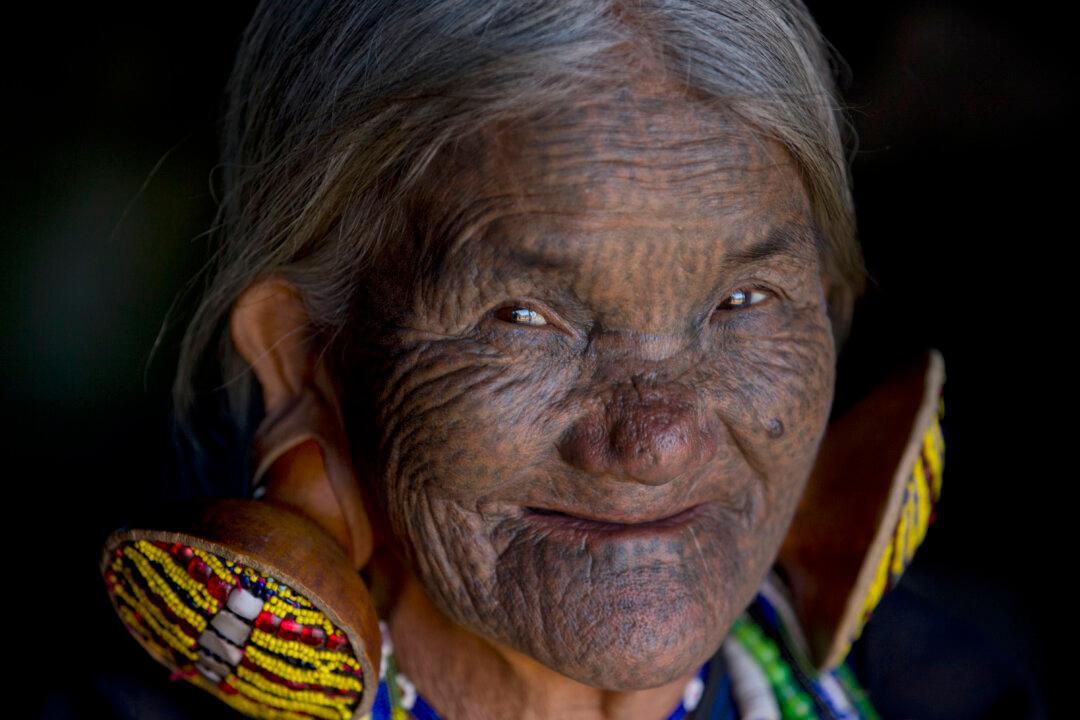KAMPALET, Burma—High in the hills of Burma’s [also known as Myanmar] Chin state, Shwe Mana plays a gentle song on a bamboo flute using only her nostrils—one of the last of her tribe to preserve this ancient skill. A dark, intricate web of tattoos covers her face, harking back to a time, it is said, when women disfigured themselves to dampen the lust of lowland marauders.
Her university-educated daughter, resting a hand gently on the 53-year-old’s shoulder, makes it clear she won’t be getting similar tattoos in what she calls “this Internet age.” Her illiterate mother, like many from the Chin ethnic group, explains that the outside world has imparted a new sense of what is beautiful.
“My daughter thought it would be too painful and she would not look pretty,” says Shwe Mana, whose house hugs a 4,500-foot (1,370-meter) ridgeline in the pleasant town of Kampalet. “Sometimes I also feel that the tattoos don’t make me pretty—but just sometimes.”
From The Associated Press.
